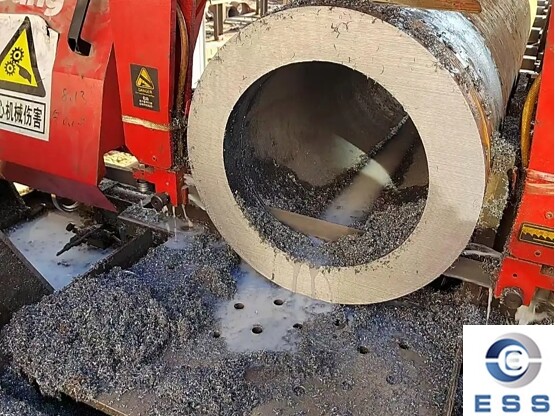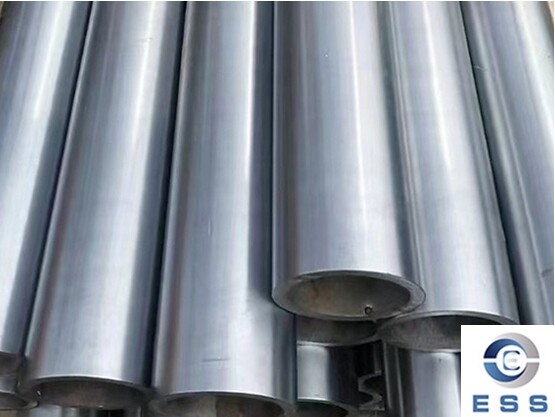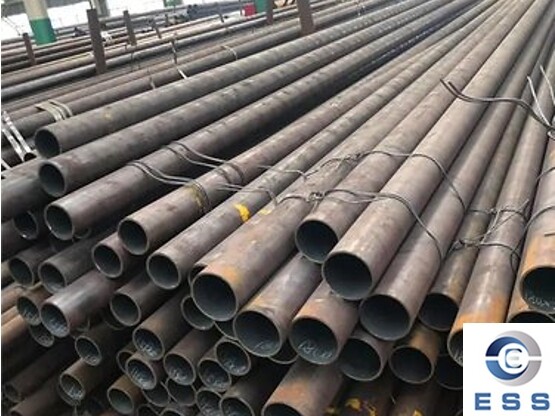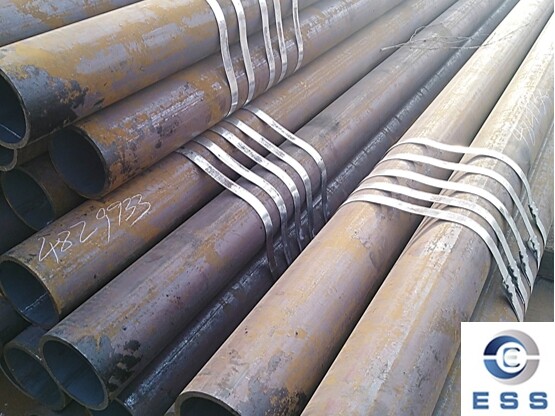
Materials
and characteristics of seamless steel pipe
As one
of the main materials for constructing various conveying equipment, seamless
steel pipes usually exhibit corrosion resistance, strong load-bearing capacity,
and high safety. Depending on the material, its characteristics vary:
1.
Carbon structural steel
Carbon steel seamless pipes have weak corrosion resistance and are suitable for use in some
environments that do not require strong anticorrosion requirements.
2.
Alloy structural steel
Alloy seamless steel pipes have better corrosion resistance and can meet some special needs.
3.
Stainless steel
The
excellent corrosion resistance of stainless steel seamless pipes is its greatest feature and is widely used in construction,
chemical industry, medical and other fields.
Commonly
used anticorrosion paints for seamless steel pipes
1.
Asphalt-based anticorrosion paint
Asphalt-based
anticorrosion paint is a relatively traditional seamless steel pipe
anticorrosion material. It has good acid and alkali resistance, corrosion
resistance and insulation properties, and can effectively prevent corrosion on
the surface of steel pipes and erosion by water.
However,
the service life of asphalt-based anticorrosion paint is short, generally only
about 5 to 7 years, and it is easy to lose and leak, and requires frequent
maintenance.
2.
Epoxy anticorrosive paint
Epoxy
anticorrosive paint is a high-performance anticorrosive paint with excellent
adhesion, hardness and chemical corrosion resistance. It is suitable for the
use of seamless steel pipes in harsh environments such as humidity, acid and
alkali.
Epoxy
anticorrosive paint is mainly divided into three types: water-based epoxy,
solvent-based epoxy and 100% cured epoxy. Its service life can reach more than
15 to 20 years.
3.
Polyurethane anticorrosive paint
Polyurethane
anticorrosive paint is a highly weather-resistant anticorrosive paint with
corrosion resistance, chemical resistance and good UV resistance. It can
effectively protect the surface of seamless steel pipes from various corrosive
media such as sunlight, water vapor, acid and alkali.
In
addition, polyurethane anticorrosive paint also has excellent wear resistance
and good adhesion, and its service life can reach more than 15 to 20 years.
4.
Inorganic zinc-rich anticorrosive paint
Inorganic
zinc-rich anticorrosive paint is an anticorrosive paint that forms an inorganic
ceramic film on the surface of the steel pipe. It has high hardness, high
corrosion resistance and good high temperature resistance. It does not contain
organic components and is harmless to the environment and human body.
The
service life of inorganic zinc-rich anti-corrosion paint can be up to 30 years
or more, which is the longest service life of seamless steel pipe
anti-corrosion materials.
Paint
types suitable for different seamless steel pipes
When
choosing the appropriate paint type, it should be determined according to the
specific requirements of the steel pipe. The following is the correspondence
between common seamless steel pipes and paint types:
1.
Carbon structural steel
Generally,
asphalt paints are used, such as asphalt primer, asphalt paint, etc.
The
advantages are low price and good anti-corrosion performance. The disadvantages
are cracking and falling off after a few years, which need to be repaired in
time.
2.
Alloy structural steel:
Alloy
structural steel can use epoxy or polyurethane paints, such as epoxy primer +
epoxy intermediate paint, polyurethane primer + polyurethane intermediate
paint, etc.
Both
paints have good adhesion and anti-corrosion performance, moisture-proof,
water-resistant, and oil-resistant, so they have a long service life.
3.
Stainless steel
After
surface treatment, two coating methods can be used. The primer is epoxy primer
and the middle paint is epoxy middle paint, which can protect stainless steel.
Painting
precautions
During
the painting process, the following points should be noted:
1.
Apply primer thinly
The
primer layer should be controlled at about 25-30μm, and
the middle paint and topcoat layers should also be slightly thinner to ensure
adhesion and anti-corrosion performance.
2. The
paint should be uniform
After
each coating, the paint should be uniform without leaving any coating marks.
Brushing, rolling, spraying and other methods can be used to achieve uniform
coating.
3.
Control the thickness of the paint layer
During
coating, the paint should be applied evenly in layers, and each layer should
ensure uniformity and good adhesion.
4. Prevent
the end nose phenomenon
After
the paint shrinks, it is easy to shrink horizontally and form the end nose
phenomenon. Therefore, the paint film should ensure continuity and firm
adhesion.
Summary
In
short, the selection of the appropriate type of anti-corrosion paint should be
determined in combination with the needs and material of the seamless steel
pipe. At the same time, during the
painting process, it is also necessary to apply the paint according to the
requirements to maximize the anti-corrosion and corrosion resistance of the
paint.













 Eastern Steel Manufacturing Co.,Ltd not only improve product production and sales services, but also provide additional value-added services. As long as you need, we can complete your specific needs together.
Eastern Steel Manufacturing Co.,Ltd not only improve product production and sales services, but also provide additional value-added services. As long as you need, we can complete your specific needs together.










